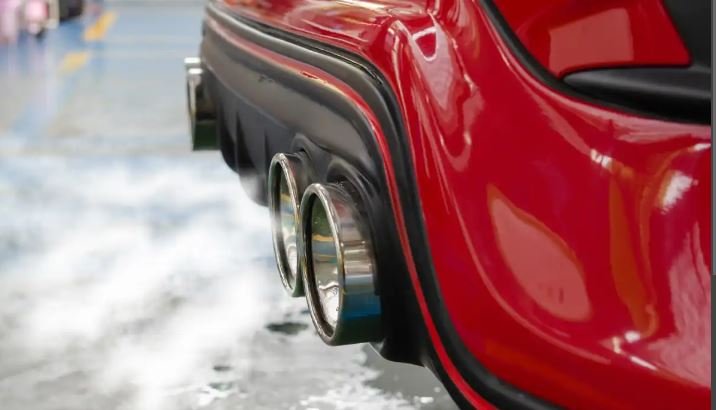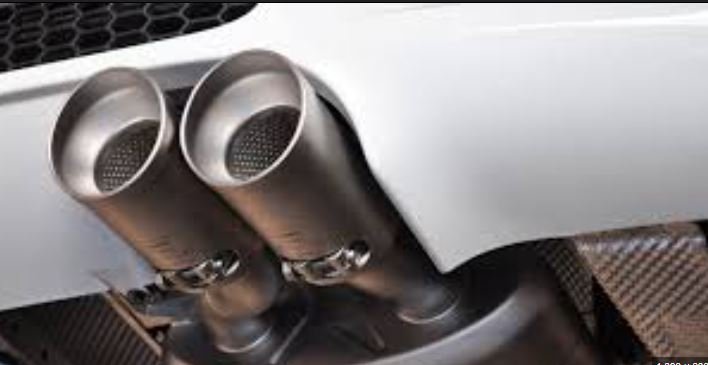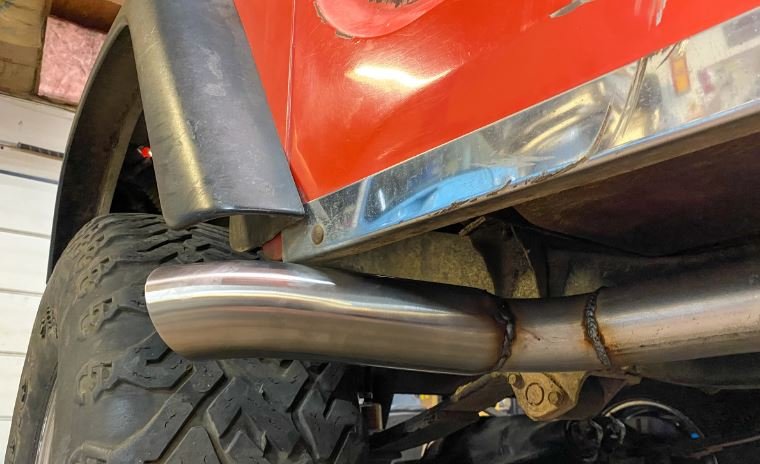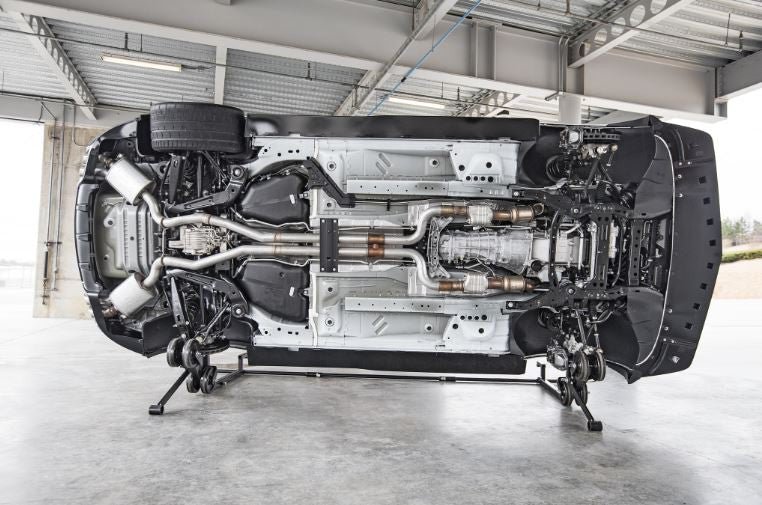The exhaust system in a vehicle plays a crucial role in managing engine emissions and enhancing performance. Understanding its components and functions helps ensure your vehicle runs efficiently and remains environmentally friendly. This guide covers the essential aspects of the exhaust system basics, including its components, functions, and maintenance.

1. What Is an Exhaust System?
An exhaust system is a network of components that directs exhaust gases away from the engine and out of the vehicle. Its primary purpose is to reduce harmful emissions, minimize noise, and improve engine performance. The system includes various parts, each contributing to the overall function and efficiency.
2. Key Components of the Exhaust System
- Exhaust Manifold: The exhaust manifold collects exhaust gases from the engine’s cylinders and channels them into the exhaust system. It is usually made of cast iron or stainless steel and is designed to withstand high temperatures.
- Catalytic Converter: The catalytic converter reduces harmful pollutants in exhaust gases by converting them into less harmful substances. It uses a chemical reaction to break down carbon monoxide, hydrocarbons, and nitrogen oxides.
- Muffler: The muffler reduces noise produced by the engine’s exhaust gases. It uses internal baffles and chambers to dampen the sound and direct the gases through the system quietly.
- Exhaust Pipes: Exhaust pipes transport exhaust gases from the engine through the catalytic converter and muffler to the rear of the vehicle. They are typically made of stainless steel or aluminized steel to resist corrosion.
3. How the Exhaust System Works
When the engine burns fuel, it produces exhaust gases that need to be expelled safely. The exhaust manifold collects these gases and directs them to the catalytic converter, where harmful emissions are converted into less harmful compounds. The gases then flow through the muffler, which reduces noise, and finally exit the vehicle through the exhaust pipes.
4. Benefits of a Well-Maintained Exhaust System
A properly functioning exhaust system offers several benefits:
- Reduced Emissions: The catalytic converter plays a key role in reducing the environmental impact of your vehicle by converting harmful gases into less harmful substances.
- Improved Fuel Efficiency: A well-maintained exhaust system can enhance fuel efficiency by ensuring that the engine operates efficiently and expels exhaust gases effectively.
- Reduced Noise: The muffler minimizes engine noise, providing a quieter driving experience and reducing noise pollution.
5. Common Exhaust System Issues
Several issues can affect the performance of your exhaust system:
- Exhaust Leaks: Leaks in the exhaust system can lead to reduced performance, increased noise, and potential exposure to harmful gases. Common causes include damaged pipes or faulty seals.
- Catalytic Converter Failure: A failing catalytic converter can lead to increased emissions, poor engine performance, and reduced fuel efficiency. Symptoms include a decrease in power and a sulfur-like smell.
- Muffler Damage: A damaged muffler can result in increased noise and reduced effectiveness in noise reduction. Common issues include rust or physical damage.
6. Maintaining Your Exhaust System
Regular maintenance is essential for ensuring the longevity and performance of your exhaust system. Here are some maintenance tips:
- Inspect Regularly: Check the exhaust system for signs of damage, leaks, or rust. Regular inspections can help identify issues before they become serious problems.
- Listen for Unusual Noises: Pay attention to any changes in the sound of your vehicle’s exhaust. Unusual noises may indicate issues with the muffler or other components.
- Address Issues Promptly: If you notice any signs of exhaust system problems, such as reduced performance or unusual noises, have the system inspected and repaired by a professional as soon as possible.
7. Upgrading Your Exhaust System
Upgrading your exhaust system can improve performance and enhance your vehicle’s sound. Options include high-performance exhaust systems that offer better airflow and reduced back pressure. When upgrading, ensure that the new system is compatible with your vehicle and meets emission standards.
8. The Impact of Exhaust System Modifications
Modifying your exhaust system can affect various aspects of your vehicle’s performance:
- Increased Power: Performance exhaust systems can improve engine efficiency and increase horsepower.
- Enhanced Sound: Custom exhaust systems can provide a more aggressive or distinctive sound, depending on your preference.
- Potential Emission Concerns: Ensure that any modifications comply with local emission regulations to avoid legal issues and ensure environmental compliance.
9. The Role of Exhaust System in Vehicle Safety
A properly functioning exhaust system contributes to overall vehicle safety by ensuring that exhaust gases are safely expelled from the cabin and reducing the risk of exposure to harmful emissions. Additionally, a well-maintained system helps prevent potential hazards associated with exhaust leaks or system failures.
10. Professional Inspection and Repairs
For complex issues or major repairs, consult a professional mechanic who specializes in exhaust systems. They can provide expert diagnostics, perform necessary repairs, and ensure that your exhaust system functions correctly and safely.
Conclusion
Understanding the basics of your vehicle’s exhaust system is essential for maintaining performance, efficiency, and safety. Regular inspections, prompt repairs, and appropriate upgrades can enhance the system’s functionality and ensure compliance with emission standards. By taking care of your exhaust system, you contribute to a cleaner environment and a smoother driving experience.




